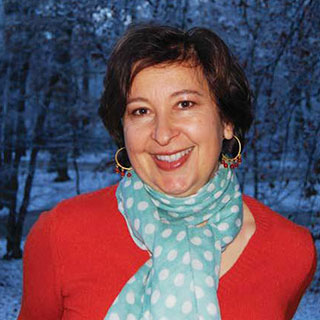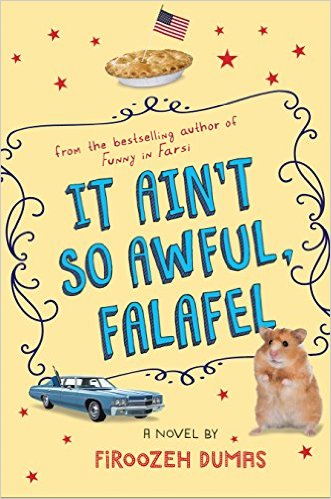 When Firoozeh Dumas was 13 years old and living in California, events halfway around the world changed the course of her life.
When Firoozeh Dumas was 13 years old and living in California, events halfway around the world changed the course of her life.
In January 1979, Mohammad Reza Shah left Iran amid protests over how he used the secret police to control the country. On April 1 of that year, Ayatollah Khomeini, the newly named supreme spiritual leader of Iran, declared an Islamic republic with a new constitution reflecting his ideals of Islamic government. On Nov. 4, Iranian Islamic Students stormed the U.S. embassy taking 66 people hostage. Fourteen were released before the end of November. The rest were held until Jan. 20, 1981.
As a result of the Iranian revolution, Firoozeh’s father lost his job, and her mother became depressed. Firoozeh felt her hopes disappear, but friends and a caring community helped Firoozeh and her family achieve their dreams.
Firoozeh, who is the author of “Funny in Farsi” and “Laughing Without an Accent,” wrote her latest novel, “It Ain’t So Awful Falafel,” with a younger audience in mind. The middle-grade novel is semi-autobiographical and addresses U.S./Iran history through humor. “As improbable as that combination sounds, I needed to fill that void,” Firoozeh said.
 More importantly, however, Firoozeh felt like younger readers would benefit from reading her story. “This is why in the dedication, I wrote, ‘To all the kids who don’t belong, for whatever reason. This one’s for you,’” the author told Cracking the Cover.
More importantly, however, Firoozeh felt like younger readers would benefit from reading her story. “This is why in the dedication, I wrote, ‘To all the kids who don’t belong, for whatever reason. This one’s for you,’” the author told Cracking the Cover.
“It Ain’t So Awful Falafel” is a celebration of struggles and the hope that brings you through them. “I wanted to share my challenging experiences, like my father being unemployed, so all kids can have hope. Life is not easy for kids. Often, they must navigate their way through difficult situations without a road map. In some small way, I hope my book is a road map,” Firoozeh said.
“I also wanted readers, both girls and boys, to meet a Middle Eastern character who is funny and relatable. No such character currently exists. All the Middle Eastern characters in books are either oppressed or hopeless or mean. That is not an accurate representation!”
There’s a lot of research that went into making the historical elements of “It Ain’t So Awful Falafel” easily digestible. The novel required seven years, and twenty-six versions. “I spent two years trying to figure the balance of history in this novel,” Firoozeh said. “That was the single hardest element. I didn’t want to write a history book, but I wanted to include as much history as possible, while still keeping the story interesting for readers. I read many, many newspaper articles, I watched endless news clips, and I talked to people about their memories. I was happy when the book was finished because I felt like I had been living in the late ’70s, early ’80s for the second time. Once was enough for me!”
Firoozeh hopes readers have a great experience with her novel and come away with a desire to go to the library and check out more books. Beyond that, she wants “them to become wiser, kinder and more hopeful as a result of my story. Last, I hope they become interested in history. I used to think history was the most boring topic on Earth until I took a class in college that sparked my interest. Now I think, ‘How can we make any important decisions without knowing history?’”
In conjunction with “It Ain’t So Awful Falafel” Firoozeh has created the Falafel Kindness Project, which encourages young people to create kind and safe environments that defuse bullying. “There is so much conversation about bullying these days, and frankly, I don’t think it’s helping,” she said. “We should be talking about kindness. Kindness is extremely powerful, and it takes so little to make a big difference in a person’s life. Anyone can be kind at any time. It’s a powerful tool we all have and I wanted kids to realize that power.”
If you are a student, teacher, or parent who has decided to do something in the spirit of The Falafel Kindness Project, Firoozeh would like you to visit her website and share your story. She will post those ideas on her website to inspire others to spread kindness.
Learn more about Firoozeh Dumas and “It Ain’t So Awful Falafel” by reading the complete transcript of her interview with Cracking the Cover.
